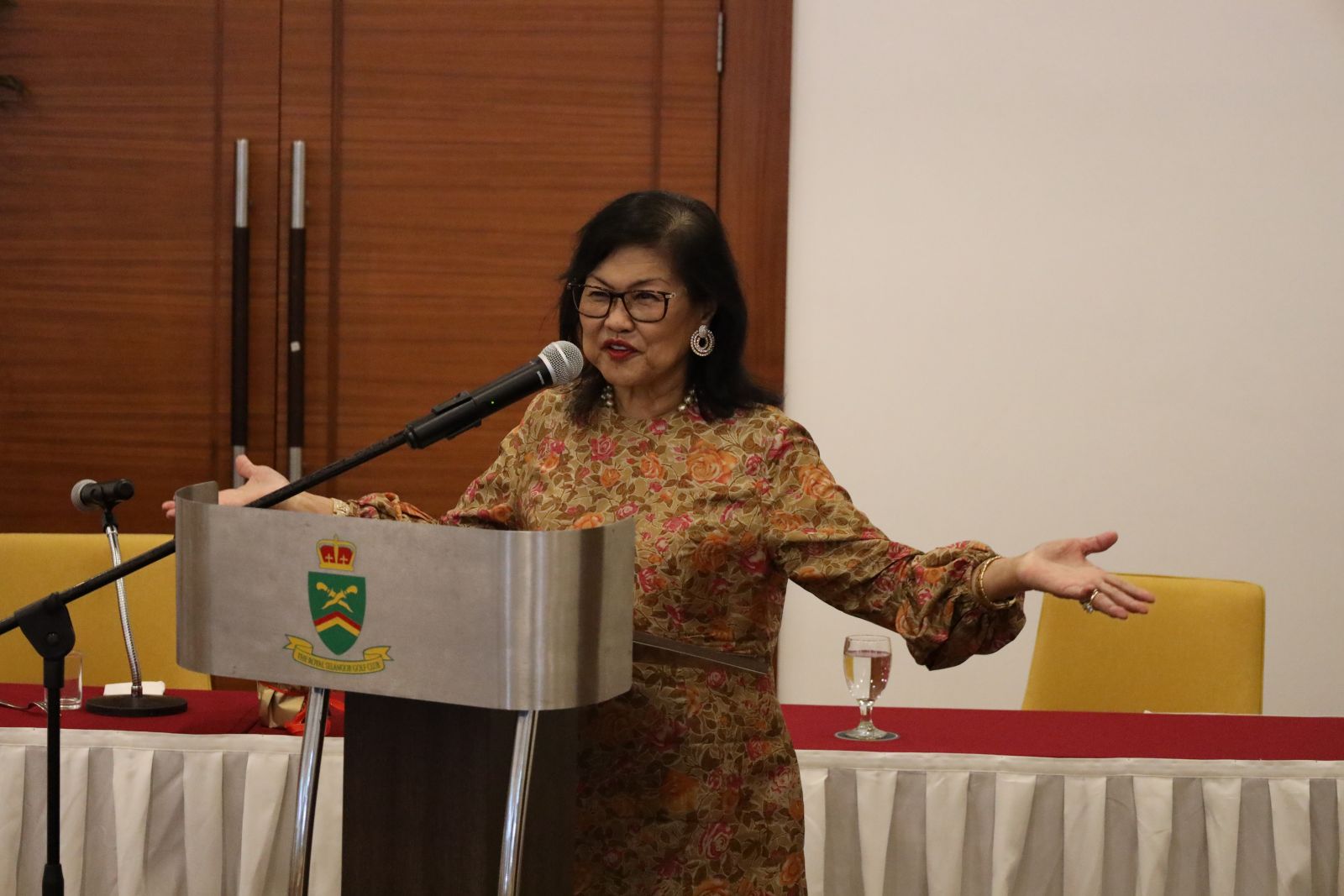 |
|
Tan Sri Rafidah’s Speech
Tan Sri Rafidah Aziz, Minister of International Trade and Industry (Malaysia) 1987 - 2008, graced the 40th Annual General Meeting of the Malaysian Culture Group (MCG) with her speech.
Conveying Hari Raya greetings and congratulations to the MCG Committee, and the MCG, she began on a light note by informing of her trysts at scuba-diving at age 73 and seeing the beauty and marvels of marine life 15 feet under water! She would rather her membership at PADI be applauded than the list of her achievements in public office; and how proud she is to be a ‘Queenager’!
Speaking on the ‘Strategic role of Malaysia’s rich cultural heritage in the country’s development’ particularly the role of technology during the covid pandemic, Tan Sri Rafidah touched on the repercussions of the covid pandemic and acknowledged the challenges faced by all nations, big and small.
The ongoing situation has caused the evolution of the ‘new normal’ where people have suddenly been forced to make adjustments to the way they live and work. With the dollar income reduced and inflation eating into our dollar, new disparities have become apparent.
In these life-changing situations, creativity and innovation in ICT have provided some solutions which cover a wide spectrum - from online retail to virtual conferences across international borders.
There are lessons to be learned from this pandemic. The virus does not discriminate and virus containment can be difficult. The global approach to managing the virus transmission transcends nationalities, religions, cultures and social status and there should be no double standards in the implementation of standard operating procedures. In these challenging times, there should be a common denominator in being Malaysian, no VIP status for covid, with a focus on the qualitative rather than the quantitative.
She cautioned that we have to be aware of our interaction within our own group and community and be sure that no one among us is off-track in the common endeavour to keep ourselves and others safe. We must recognise that we, each individual, is influential in our own way and must play our role as society members in sending the vaccination message and implementation of safety measures through.
The pandemic has forced everyone to rethink aspects of life such as access to health care and quality of education. Tan Sri Rafidah urged us to ponder the impact of covid not only on essential health care services but on virtual education - the haphazard way it is done in many cases. Education for the future market place must be given prominence and so should health care management. Adapting to the new normal can greatly affect the future and she reminded that we rethink and examine the context of the impact of what is done today on tomorrow.
A consequence of the new normal is the emergence of new values, new conventions and narratives. A new culture will evolve, a culture which we hope will see the balancing skill and integration necessary to build a better society.
Do we have the capacity to adapt, to manage resilience in the face of adversity? It is up to us to adapt to these challenges. Whether we respond positively or negatively will affect our personal and social lives.
In connecting the effects of the pandemic to an evolving cultural heritage, Tan Sri Rafidah defined cultural heritage as ‘the heritage of tangible and intangible assets of a group or society that is inherited from past generations. It includes tangible culture, intangible culture and natural heritage.’
In buildings, monuments and great works of art and literature, the achievements and successes of the past are present to us in tangible forms. Tan Sri Rafidah went on to further explain the inner beauty of the intangible heritage. It is this non-physical cultural manifestation which she considers more relevant. A focus on the intangible heritage is important as it lies behind the tangible. She spoke of the quantifiable and unquantifiable aspects of cultural heritage and compared the qualitative with the quantitative.
A look into the lives and mind set of the creators and builders of the great monuments of the world which are almost impossible to replicate will reveal the dedication and integrity of effort of the society. She cited the pyramids of Egypt and the Great Wall of China as examples. For any society to survive there should be the cornerstone of integrity from which to build upon.
It is from intangible heritage that the characteristics of what lies behind the cultural heritage legacy is drawn. From it we appreciate the soul and mind set of the people who made it happen - their sense of inner beauty of their creation causes future generations to marvel at how the minute details were executed. Through this manifestation of integrity the collective responsibility of a resilient society shines forth.
From the cornerstone of integrity, is built and forged a society with a collective soul which can be considered the cultural heritage of a nation.
…so what then can we hope to see in the next millennium? Not a fractious society, nor the residue of war.
What will we leave behind? Will the next millennium be seen as a collective soul society?
Our motivation to unite should be because we are diverse. Sustainable development can only be achieved with societal integrity. Let us syncronise our life compass in the right direction.
Siew Yen Chuah |




